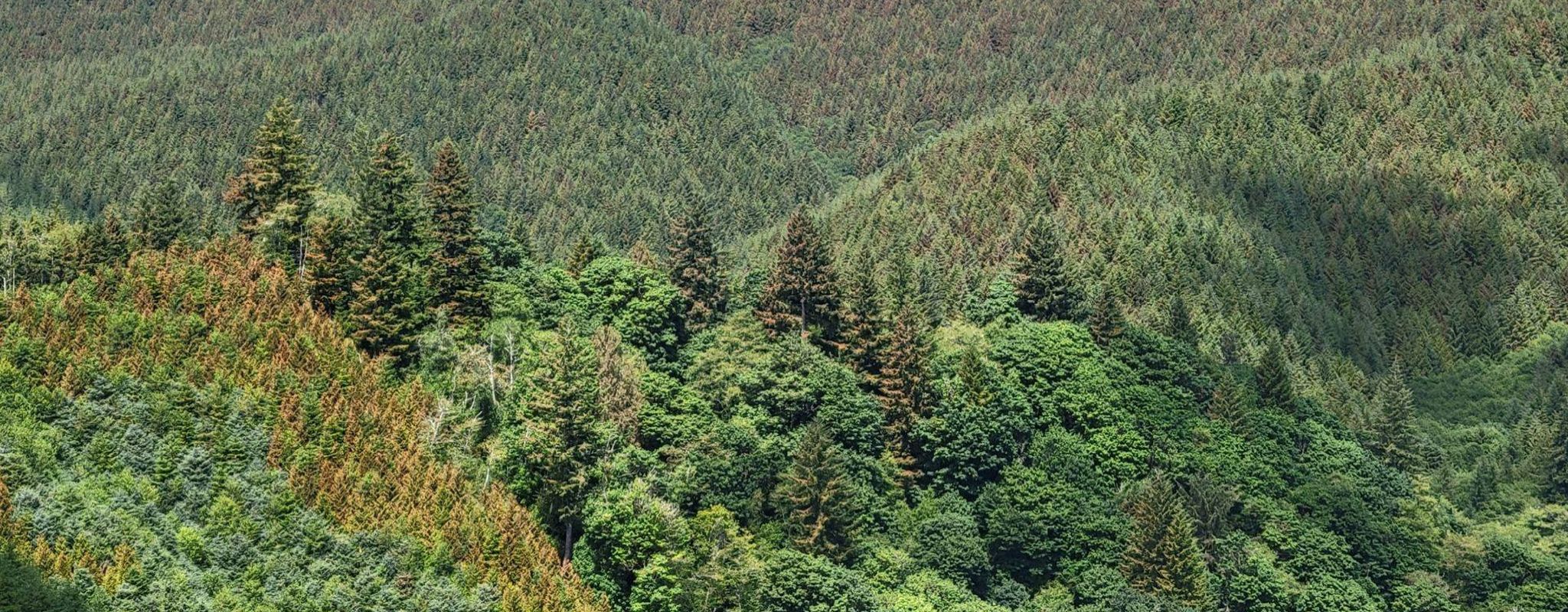This symposium happened on Friday, November 19
Following 2 years of drought, many areas of the Pacific Northwest (PNW) experienced unprecedented air temperatures during an extreme heat wave in late June and early July of 2021. This event (“the heat dome”) led to numerous reports of foliage scorch and leaf drop in westside forests of the Oregon coast range and the Cascades mountain range. Western hemlock (Tsuga heterophylla) and Western Red Cedar (Thuja plicata) seem to have been the most impacted tree species, but Douglas fir (Pseudotsuga menziesii) and various alder and maple species were also affected. Notably, trees and saplings with direct solar exposure and on S-facing slopes seemed to suffer the worst foliage scorch. We do not know what the near- and long-term physiological causes and consequences of foliage scorch and heat stress will be, at either leaf or tree scales. The impacts could range from impaired metabolism on surviving leaves to reduced stem diameter growth to eventual tree mortality.
To this end, we are organizing a mini-symposium at OSU to synthesize and assess findings from a range of forest types (natural, managed, and urban) and approaches. The mini-symposium will cover most of a morning, and the agenda will be focused on heat dome scorch patterns, questions, and follow-on studies. It will consist of talks and possibly some break-out groups with Zoom options for remote participants:
- Overview presentations on the heat dome event impacts and leaf physiology
- Overview presentation on the heat dome and its climatic drivers
- Presentation summarizing citizen science inputs to the ODF webpage
- Presentation summarizing spatial patterns of scorch and satellite imagery
- Presentation on aerial survey results
- Open discussion of follow-on studies, what comes next, etc.
We invite you to participate and share your experience, knowledge, and expertise on this event which provides a unique opportunity to probe the physiological and ecological responses to an extreme heat wave in important tree species of the PNW.
